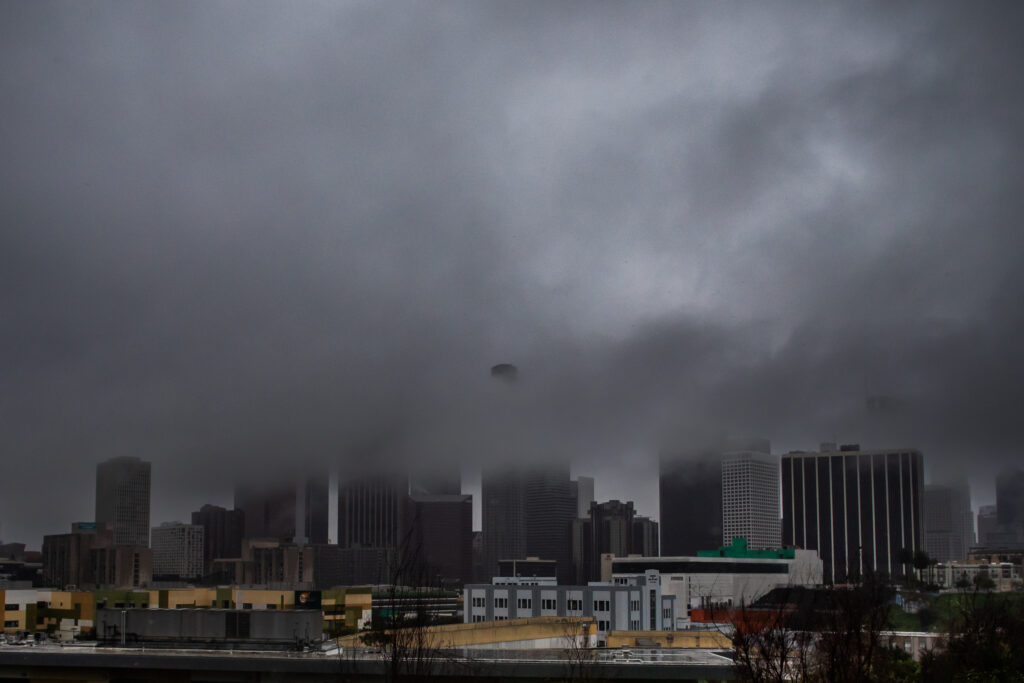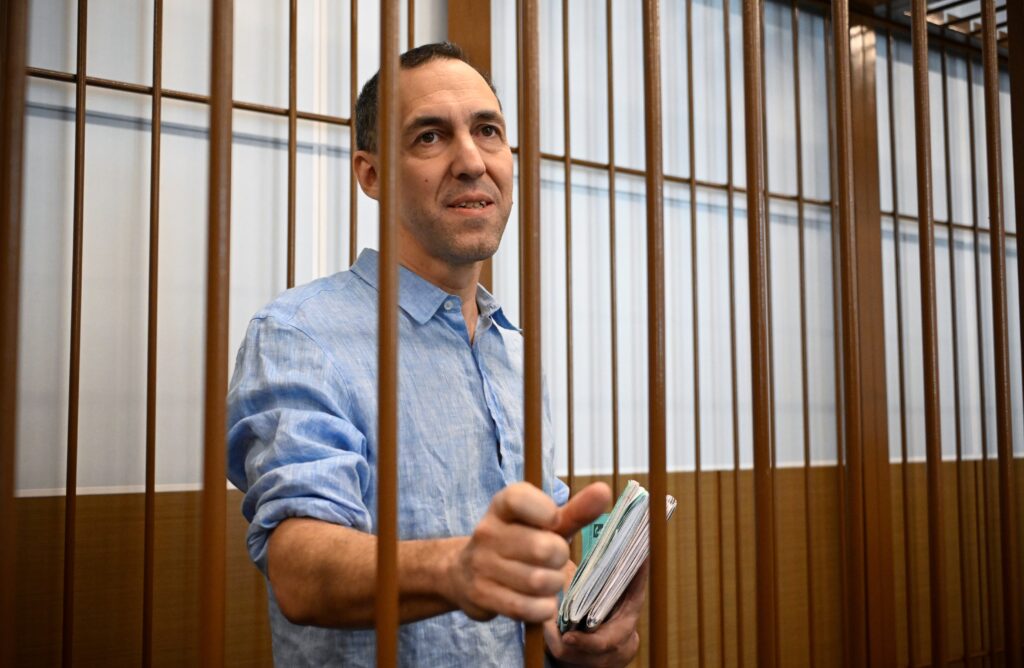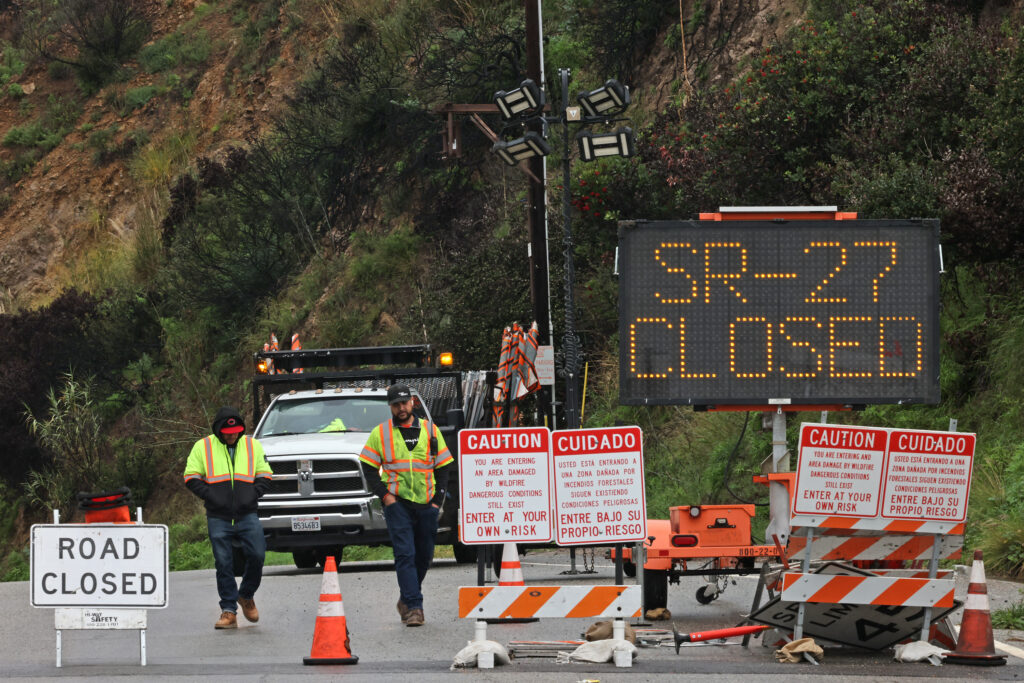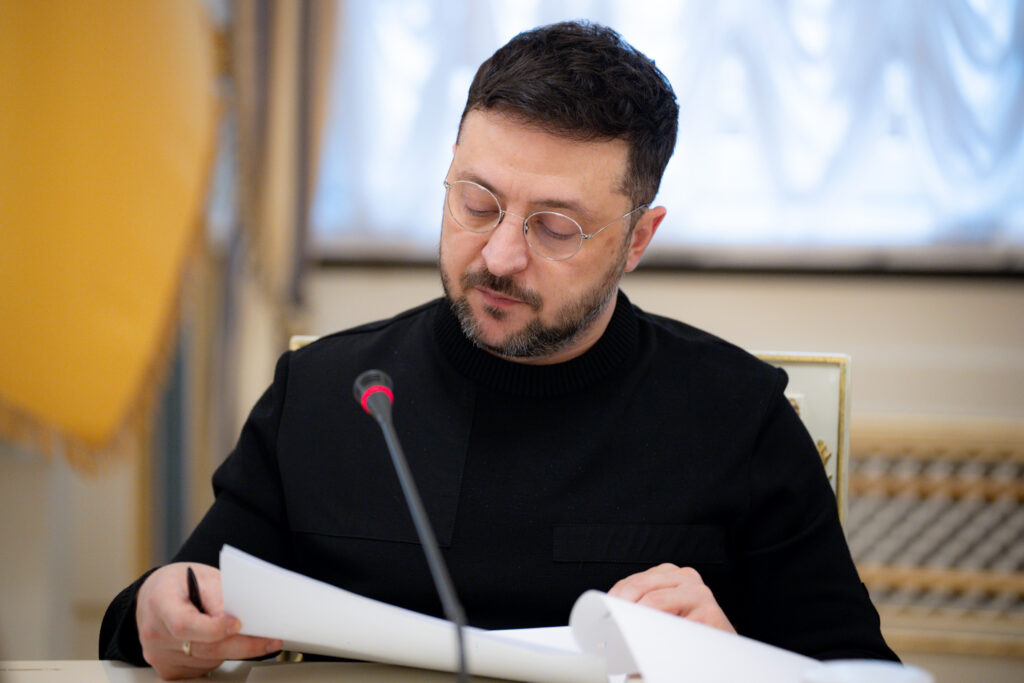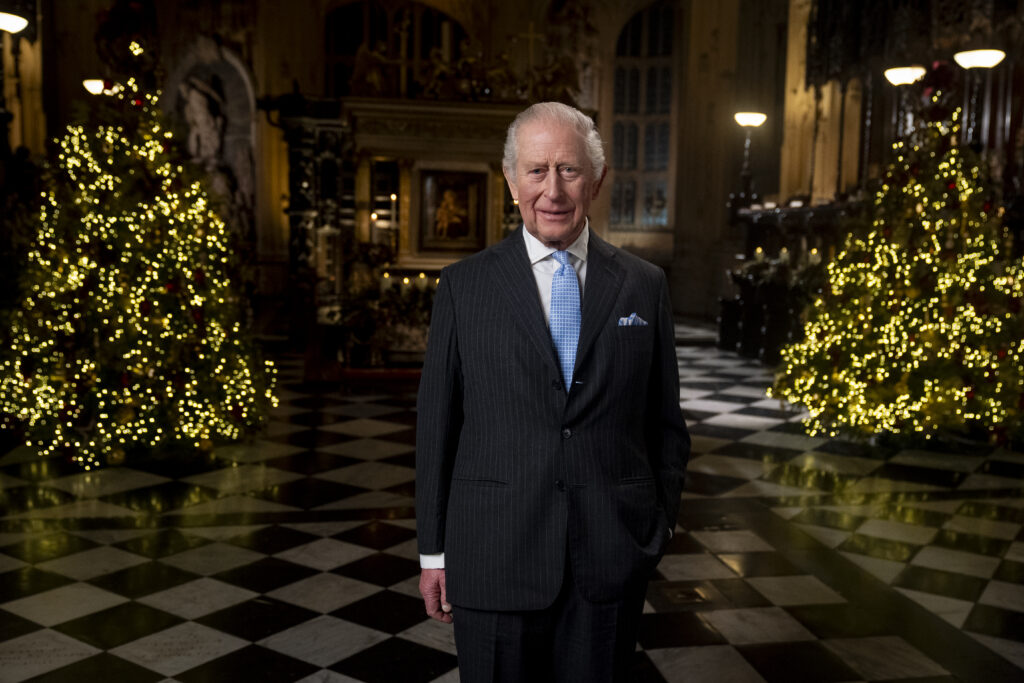Heavy rain, flash floods hit California
Torrential rains unleashed flash floods and warnings of debris flow across southern California’s fire-scarred areas, as a series of Christmas storms pummeled the state, with downpours and high winds forecast through Friday.Driven by an atmospheric river known as “the Pineapple Express,” which moves heavy moisture from Hawaii to the US West Coast, storms were expected to dump months’ worth of rain in California over a few days.Early Thursday, the National Weather Service (NWS) forecast that southern California, including Los Angeles, the second-most populous US city, was at risk of excessive rainfall.It warned of a “broad plume of moisture” producing heavy rain in California on Thursday.”Numerous flash flooding events are possible. In addition, many streams may flood, potentially affecting larger rivers. The flooding may include debris flows in or near recently burned areas,” the service said, referring to areas affected by wildfires.The rain was forecast to continue through Friday, the service said.Although there was a break in the rain in parts of southern California on Thursday before more wet weather was expected, the NWS warned that some areas could see winds with gusts of up to 55 miles per (88.5 kilometers per hour). State authorities declared a state of emergency in several counties, including Los Angeles.”We’re not out of it yet. Rain continues to fall across LA County making roadways, waterways and flood channels extremely dangerous. Check conditions before venturing out today,” Los Angeles County officials said Thursday on X.- Rescue work -Heavy rain began lashing Southern California Wednesday, where some communities had already seen 10 inches (25.4 centimeters) of rain in the first storm, forecasters said.At least three people died in storm-related incidents, including a man killed by a falling tree, the Los Angeles Times reported.In San Bernardino County, adjacent to Los Angeles, authorities told AFP they were working to divert the flow of floodwater on Thursday.Muddy water streamed through the mountain town of Wrightwood a day earlier, trapping people in their homes, said Christopher Prater, spokesperson for the county fire department.”Fire department personnel were out there rescuing people, assisting them from their houses, getting them to safety, also while affecting rescues from people that were stranded in their vehicles,” he said Thursday, with work going on into the night.Fire-burn scar zones, which are less able to absorb water due to vegetation being stripped from them, were under special alert — including the coastal areas of Pacific Palisades and Malibu, both still recovering from devastating wildfires in January.In northern California, a dangerous storm was tracked developing early Thursday morning in the San Francisco Bay Area, with an emergency alert for flash flooding issued, the San Francisco Chronicle reported.Soon after noon on Thursday (2000 GMT), the NWS office in San Francisco warned that a severe thunderstorm near Santa Cruz could spawn a tornado. The service was also predicting that a winter storm could bring heavy snowfall to the Sierra Nevada Mountains along California’s eastern border.
